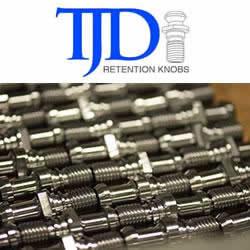Improve Manufacturing Operations with WMS
Implementing a Warehouse Management System (WMS) can significantly enhance manufacturing operations by optimizing inventory management, improving accuracy, and streamlining processes.
Here are some ways to leverage WMS for manufacturing operations improvement:
Inventory Optimization: WMS provides real-time visibility into component inventory levels, locations, and movement. It helps in maintaining optimal stock levels, reducing excess inventory, and ensuring raw materials are available when needed.
Efficient Material Handling: WMS assists in organizing the shop floor layout, defining lineside storage locations, and setting up efficient automated replenishment routines. This minimizes component shortages, reduces errors, and increases overall productivity.
Accuracy and Traceability: With WMS, you can accurately track materials, components, and finished goods throughout the manufacturing process. It can capture details of Lots issued and Serial Numbers consumed/produced. This improves traceability, reduces errors, and facilitates compliance with quality standards.
Automated Processes: WMS allows for automation of routine tasks such as inventory counting, replenishment, and shop order processing. This automation reduces manual errors, speeds up operations, and frees up personnel for more strategic tasks.
Integration with ERP/MES: Integrating WMS with Enterprise Resource Planning (ERP) or Manufacturing Execution Systems (MES) ensures seamless data flow across the organization. This enables better planning, scheduling, and decision-making.
Performance Analytics: WMS provides data analytics and reporting tools that offer insights into manufacturing operations performance metrics. This data helps in identifying bottlenecks, optimizing workflows, and making informed decisions for continuous improvement.
Supplier and Customer Collaboration: WMS facilitates better communication with suppliers and customers by providing real-time information on inventory levels, order statuses, and delivery schedules. This fosters collaboration and improves responsiveness to market demands.
Training and Employee Efficiency: Implementing WMS requires training employees on system usage. However, once trained, it enhances their efficiency by providing standardized processes and reducing manual errors.
Remember, successful implementation of a WMS requires careful planning, thorough training, and ongoing evaluation to adapt to changing business needs. Additionally, selecting a WMS that aligns with your manufacturing processes and scalability goals is crucial for long-term success.
Contact us today to learn about TouchPath's TouchWMS solution.
https://touchpath.com/
Featured Product

T.J. Davies' Retention Knobs
Our retention knobs are manufactured above international standards or to machine builder specifications. Retention knobs are manufactured utilizing AMS-6274/AISI-8620 alloy steel drawn in the United States. Threads are single-pointed on our lathes while manufacturing all other retention knob features to ensure high concentricity. Our process ensures that our threads are balanced (lead in/lead out at 180 degrees.) Each retention knob is carburized (hardened) to 58-62HRC, and case depth is .020-.030. Core hardness 40HRC. Each retention knob is coated utilizing a hot black oxide coating to military specifications. Our retention knobs are 100% covered in black oxide to prevent rust. All retention knob surfaces (not just mating surfaces) have a precision finish of 32 RMA micro or better: ISO grade 6N. Each retention knob is magnetic particle tested and tested at 2.5 times the pulling force of the drawbar. Certifications are maintained for each step in the manufacturing process for traceability.
